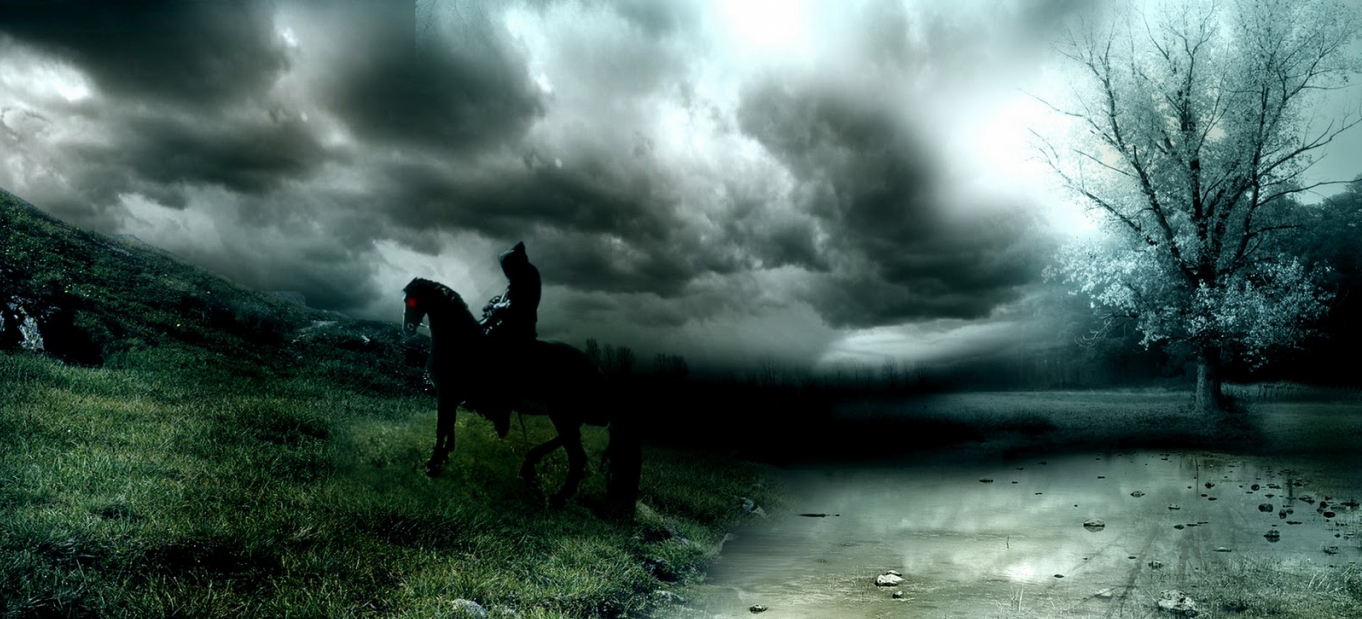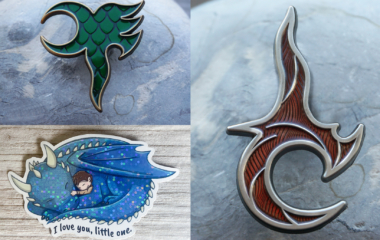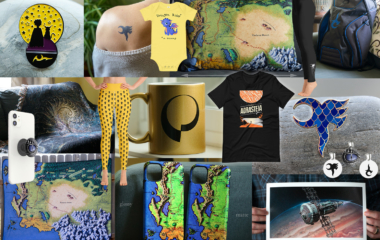
The world of Alagaësia is populated by a rich and diverse collection of names, from Hrothgar, king of the dwarves, and Galbatorix, the land’s most feared tyrant, to the walls of Tronjheim and the woods of Du Weldenvarden. These unique and memorable names have left lasting impressions on readers and have helped many further immerse themselves in the story.
Whether creating the names and words found exclusively in the Cycle or drawing from real-world languages and influential tales, Christopher has amassed an impressive number of characters whose names helped shape the Inheritance Cycle. Most evident is the influence Christopher has drawn from Old Norse, a Viking Age language which influenced a large portion of the Ancient Language as well as several character names.
We have compiled a brief look into the creation of some of the series’ unique names and have even included information on Christopher’s influences and naming process:
Ajihad – Ajihad was a name Christopher invented himself by creating a list of names based on the sound and feel he was looking for and working it out through trial and error.
Angela – The character of Angela is loosely based on Christopher’s sister.
Arya – The name Arya was inspired by aria, a melody sung in an opera.
Blagden – The name Blagden is a real Old English name meaning “the dark or black valley”.
Eragon – The name Eragon was inspired by two things: dragon, with one letter changed, and era-gone, as in a time gone by.
Galbatorix – Christopher combined the old Celtic words galba (big) and torix (king) to invent the name Galbatorix.
Hrothgar – The name Hrothgar comes from the old epic Beowulf. Hrothgar is described by the epic’s titular character as “old and good”, “famed king”, “famed warrior”, and “protector of the Scyldings” (his clan).
Murtagh – Like Ajihad, Murtagh’s name was a result of Christopher’s trial and error efforts to find a sound and feel for his character names.
Saphira – Saphira’s name was inspired by sapphire, the beautiful blue gem (blue being Christopher’s favorite color). Christopher imagine her with brilliant sapphire-blue scales, polished to a mirror-like sheen.
Shruikan – The name Shruikan is a play on Shuriken, a star-shaped martial arts throwing weapon.
Solembum –The werecat would tell you that he has many names and that this is the one he chose to share with Eragon. Like Angela, there is a story behind Solembum’s name, and the story is one that only the werecat can tell.
Thorn – Christopher named Murtagh’s dragon Thorn because it carries a sense of anger and spikiness.
Vanir – Vanir is the name of a group of Norse gods associated with fertility, wisdom, nature, magic, and the ability to see the future.
Many of Alagaesia’s cities, towns, and landmarks were also inspired by old languages, memorable stories, and Christopher’s imagination. Below are just some of these locations and the lesser-known sources of their names.
Alagaësia – Alagaësia is one of the most familiar and unique names used in the Inheritance Cycle. The name was the result of a long process of trial and error as Christopher searched for the perfect word, based on the sounds and feel he had in mind, to describe the world in which the entire series is based.
Ellesmèra – The name Ellesmèra was inspired by Ellesmere Island (Inuit: Umingmak Nuna, meaning “land of Muskox”), which is part of the Qikiqtaaluk Region of the Canadian territory of Nunavut.
Gil’ead – The town Gil’ead was another name invented from scratch.
Menoa Tree – Christopher drew inspiration from the sound of the Hawaiian language when naming the Menoa Tree.
Palancar Valley – When Christopher named the Palancar Valley, it was a tribute to the artist John Jude Palencar. Without knowing this or consulting Christopher, Random House chose him to paint the cover art for the books. Quite a coincidence!
Utgard – Utgard is a “great and devious giant” from Norse mythology.
Three memorable words often asked about did not fit into the above categories, but offer unique tales of their own.
Aren – The name of Brom’s ring, Aren, is a Hebrew word meaning “mountain of strength”.
Kull and Urgal – Christopher invented both Kull and Urgal, intending for Urgal to sound rough, like someone gargling. Similarly, Kull was intended to sound harsh and intimidating.
Undbitr – The name for Brom’s sword Undbitr came from Old Norse. Und means nothingness; bitr means biter. Thus Undbitr means “biter of the void.”
Many more names and homages to Christopher’s favorite works can be found throughout the Inheritance Cycle. A future Paolini.net article will explore many of those hidden references. We encourage readers to discover more of these words and references while reading through the series!




